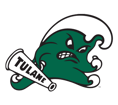 You’ve been pre-qualified, you’ve been looking at houses, you’ve made an offer, and it’s been accepted. The only thing that stands between your palm and the keys to your new home is the closing date. While the closing process may seem complex, it’s actually less intimidating than it seems. One of the common phrases that you’ll hear from your lender is “cash to close.” Let’s take a closer look at what that means.
You’ve been pre-qualified, you’ve been looking at houses, you’ve made an offer, and it’s been accepted. The only thing that stands between your palm and the keys to your new home is the closing date. While the closing process may seem complex, it’s actually less intimidating than it seems. One of the common phrases that you’ll hear from your lender is “cash to close.” Let’s take a closer look at what that means.
What are Closing Costs?
When you close on your mortgage, you pay certain fees to your lender and the title company. Your closing costs depend on your specific mortgage product, the state you live in, and your down payment amount. Typical closing fees include:
Property-Related Costs
- Appraisal Fees – Appraisals are conducted by a third-party appraiser to estimate the value of the property that you are purchasing. This allows the lender to ensure that the home is worth the amount they are lending you. The cost of appraisals will vary based on your location and property type.
- Prepaid Escrow Fees – If you choose to escrow funds for your property tax and home insurance annual payments, your lender will typically require three months of prepaid insurance and taxes at closing which will go into your escrow account.
- Flood Certification – Provides documentation to your lender of the property flood zone. This confirms whether or not flood insurance is required.
- Property Taxes – At closing, typically the buyer pays the city and county property taxes due from the date of closing through the end of the year. You may also see a credit on your closing disclosure for the pro-rated amount of taxes the seller should pay for that year.
Loan-Related Costs
- Origination Fees – Your lender has specific fees that they charge you for the underwriting and processing of your loan. Sometimes this a set fee and sometimes it is calculated as a percentage of your loan. These fees may also include an application fee, underwriting fee, or processing fee.
- Loan Interest or Prepaid Interest – This is the daily interest that accrues on the loan between the closing date and the first due date of your mortgage payment.
- Discount Points – Discount points are fees paid to the lender by the buyer at closing in exchange for a reduced interest rate. This is also referred to as “buying down the rate”. You could also have the reverse of this which is a Lender Credit. A Lender Credit is an arrangement where the borrower pays a higher rate in exchange for the lender covering part of or all of the borrower’s closing costs.
Other Insurance – Related Costs
- Homeowners Insurance – You might be required to prepay a year of homeowners insurance upfront. Typically homeowner’s insurance costs are prorated for the remainder of the year in which you bought the home. This cost will be located in “prepaid expenses” or escrow costs.
- Title Insurance – This fee protects you from an outside party’s claim to your home’s new title. This policy ensures that the person selling you the property has the right and ability to do so.
- PMI (Private Mortgage Insurance) – If you are putting down less than 20% of the balance on your mortgage, you are required to carry private mortgage insurance. You will pay a PMI premium at closing. For a conventional loan, your PMI will be canceled once you reach 22% equity.
- Mortgage Fees for FHA, USDA, or VA – For these specific loan products (as compared to conventional loans), certain fees are charged at closing. For example, FHA loans require an upfront mortgage insurance premium (MIP) as well as a monthly fee. VA loans require an upfront one-time funding fee that is determined by your loan amount as well as other factors. These fees pay for administrative costs that help the programs continue.
Other fees that may be applied to your closing costs include a home inspection, surveying, or pest inspection.
What Does “Cash to Close” Mean?
Your lender will share a breakdown of all of these costs and fees that are required to close your loan ahead of time in the form of a closing disclosure. This is the amount that you will need to wire to the title company or bring a cashier’s check to the closing table. Your cash to close amount is based on the loan’s total closing costs, less any fees that were rolled into the loan amount. This amount also includes the down payment you committed during your application process. The earnest money that you included in your offer and paid before closing will be credited toward this sum.
Your down payment will likely be the bulk of this amount. The down payment is a percentage of the home’s purchase price that you pay to your lender. The other fees and charges will be outlined before your closing date so that you know the exact amount that you need to pay and where each dollar is going.
The most important part of the home purchasing process is selecting the proper loan officer to help through each stage of the mortgage process, from pre-approval to the closing table. For over 90 years, the experts at Standard Mortgage (NMLS#:44912) have been helping homebuyers purchase and homeowners refinance while servicing their loans the entire way.





